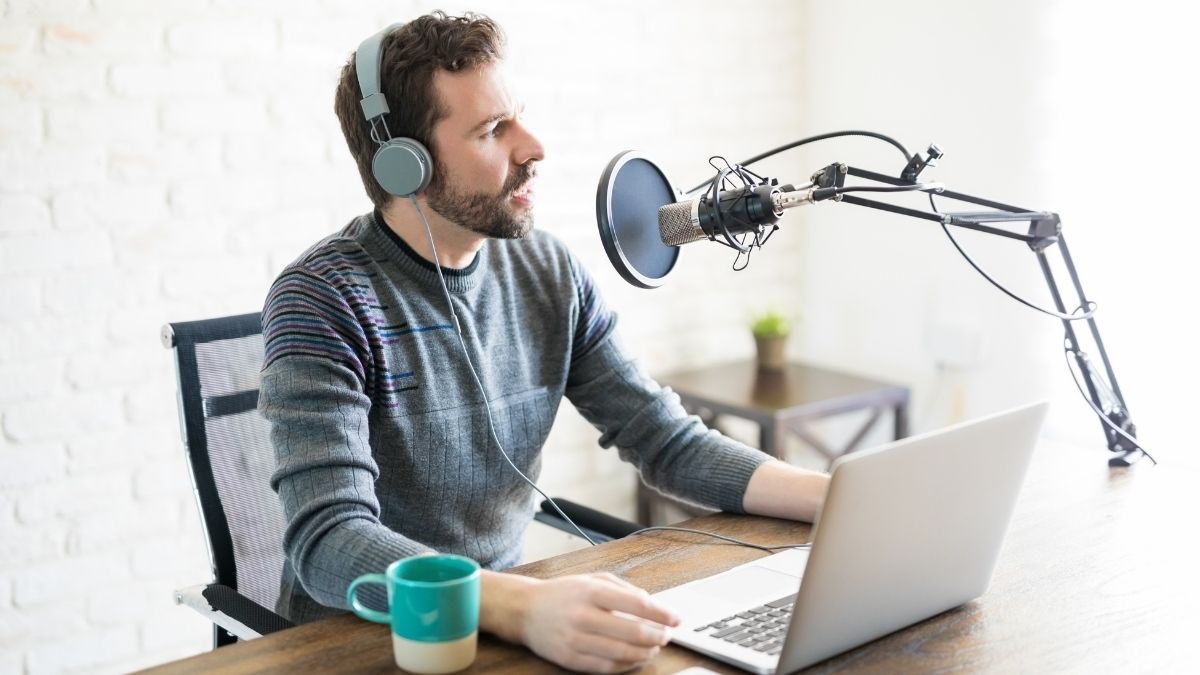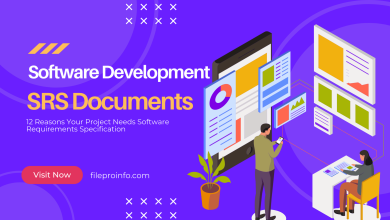
It can be difficult to get started with a podcast. Finding a niche and organizing your equipment are just a few of the many things that must be taken care of to succeed. If you want to start your podcast but don’t know where to start, this ultimate guide to starting a podcast will point you in the right direction. After reading it, you will have a clear understanding of the benefits of podcasting, how to start one, and even how to make money from it.
14 Steps to Start a Podcast
A podcast can be started by anyone. All you have to do is record your episodes and post them online.
However, turning your podcast show into a profitable business is an entirely different story.
The following podcast hints will assist you in successfully launching a podcast show that your audience will enjoy:
1. Decide What Your Podcast will be About?
When you decide to start a podcast, the first question that comes to mind is what the topic of your podcast will be. It’s difficult to come up with something that you and your audience will enjoy episode after episode.
As a result, you must decide to podcast about your interests and hobbies so that you do not lose interest even after years of podcasting.
If you already have a business, selecting podcast topics that are related to your business can be a good strategy. For example, suppose you run a social media agency that assists small business owners. Then, your podcast content can provide social media tips, tricks, and hacks.
2. Select a Niche
Your business audience can be as diverse as their hobbies and interests. Choosing a niche helps a lot when it comes to maximizing your podcast’s success.
A podcast niche is a topic that is narrowly defined and appeals to a specific type of audience. Successful podcast niches include health and fitness, personal finance, self-improvement, and so on.
Here are a few pointers to help you find the perfect niche:
- Make a list of your favorite things.
- Make a list of what distinguishes you.
- Examine your strengths and weaknesses.
- Think about the competition.
Last but not least, choose a niche that you are passionate about so that you can work for the foreseeable future without becoming bored or burned out.
3. Decide on Your Podcast Categories
When you upload a podcast to Apple Podcasts, you’ll be asked to select a category. Apple Podcasts’ most popular categories include arts, business, education, fiction, and health and fitness.
As a general rule, choose a category where potential listeners are likely to find you. Because subcategories have niche audiences, listing your podcast show in a subcategory helps you find more new subscribers.
You can add a category to your podcast show on Google Podcasts by using the category tag in the RSS feed.
4. Decide on an Amazing Podcast Name
A one-of-a-kind name can help you stand out from the crowd. As a result, you must choose an outstanding title for your podcast show.
Here are some pointers to think about when deciding on a title for your podcast:
- Choose a name that accurately represents your content. If you’re running a podcast about Asian cooking, the name Yummy Wok makes sense.
- Make your podcast’s name as brief as possible. It’s pointless to call your podcast A Cook’s Guide to Easy-to-Make Recipes when you can simply call it Quick Cooking.
- Never use creative misspellings, special characters, punctuation marks, or abbreviations in your podcast title. Make sure it’s easy to hear and easy to spell.
Most importantly, before creating social profiles and community profiles with the same name, you should check to see if the name is available.
5. Design Your Podcast Cover Art
Your podcast cover art can capture your listeners’ attention because it is often the first thing they notice when they stumble across your podcast.
As a result, you should select an excellent podcast cover design.
Here are a few pointers to keep in mind when designing a podcast cover:
- The size guidelines of podcast platforms must be followed when designing the cover.
- Make sure the design conveys the theme of your content. Use beautiful typography and limit the number of words in your cover design.
- Make certain that the cover complements your logo.
A fantastic podcast cover is essential for attracting listeners. If you are unable to create cover art, you can find inspiration from other podcasts in your niche.
6. Create an SEO Optimized Podcast Description
The description of your podcast is crucial in persuading listeners to subscribe to it.
You will be required to write two types of descriptions: one for your show and another for each episode. You must write SEO-optimized descriptions for both to build a successful podcast show.
Include the most important keywords/phrases in your descriptions. This will increase the number of listeners by increasing the visibility of your podcast. As a result, your podcasting company will be more profitable.
7. Write Scripts for your Podcast Episodes
Writing scripts for your podcast episodes allows you to stay on track during the podcast – you’ll know what to talk about and when.
Additionally, podcast scripts reduce unnecessary pauses and rambling.
Typically, a podcast script will include:
- First and foremost (set the tone for the episode)
- Introduction of the Guest (if you have any)
- Sponsorship message (if you have any)
- Discussion of the subject (The main point, supporting point, supporting data, supporting quote)
- Segue \sOutro
- Invitation to action (CTA)
Many podcasters create full scripts for their episodes, but others prefer to jot down key points to be discussed during the episodes. You should do whatever works best for you.
8. Find an Amazing Recording Space
Whether you want to record remote interviews or will be alone on your podcast show, the audio quality of your podcast is extremely important. If the sound quality of a podcast is poor, listeners frequently abandon it halfway through.
As a result, you should strive to provide high-quality podcast audio to your audience.
The good news is that the majority of popular podcasting microphones will not burn a hole in your pocket. Setting up recording space, on the other hand, can be difficult if you want to set up a home studio.
Here are some pointers to get you started:
- Choose a smaller room with little outside noise.
- Install soft materials such as a rug, curtain, or carpet.
- To make your room soundproof, use soundproof wall panels.
If your show will only have a few episodes or if you make a lot of money from podcasting, you might want to consider renting a studio.
9. Set Up Your Equipment
If you want to run a podcast show as a business, you should invest in the necessary equipment.
Here is a list of things you should buy:
- A machine that computes
- A microphone mounted on a stand
- Winder screen or pop filter
- Software for audio recording
- Editing software
- Treatment for Acoustics
9. Set Up Your Equipmen
You have finished configuring the podcast equipment. It’s time to start recording your first episode for your listeners.
Can I Record a Podcast on my Phone?
Yes, you can use a recording app on your phone to record a podcast. However, in order to have studio-quality recordings, you must purchase podcast recording equipment.
How do I record a Podcast Remotely?
Zencastr is an excellent tool for recording podcasts in various locations. You can also record Skype calls if you want to interview podcast guests from a distance.
Intro music sets the tone for your audience. As a result, use appropriate podcast music. You can easily search for free music on the internet.
11. Edit Your Podcast
After you’ve finished recording, you’ll need to edit audio files in order to provide podcast listeners with a high-quality show.
Here are some examples of popular audio editing software:
- Adobe Audition
- Audacity
- Ableton Live
- Descript
12. Decide on a Podcast Hosting Service
You will also need to choose a location to host your podcast, especially hosting for professional podcasts.
Here is a list of the best podcast hosting services for all popular podcast formats:
- Podbean
- BuzzSprout
- Transistor
- SoundCloud
- Blubrry
It is very simple to set up a podcast hosting account with the companies mentioned above.
13. Launch Your Podcast
There are numerous listening apps with a wide range of content. Nobody is going to notice your podcast if you don’t launch it with a bang.
The initial buzz generated by your podcast launch can entice listeners to press the play button and subscribe.
Here are a few best practices for launching your podcast successfully:
- At the time of launch, there should be at least ten episodes.
- Keep the episode length to less than an hour.
- One month before your launch, look into being a guest on multiple podcasts.
- Make eye-catching episode titles.
- Publish on multiple platforms
- Create a strategy for boosting each new episode
14. Promote Your Podcast
A fantastic launch will not guarantee the success of your podcast show. You must keep the momentum going by marketing.
The following pointers can assist you in marketing your podcast to a larger audience:
- Include your podcast in podcast directories.
- Employ a web developer to create a podcast website.
- Collaborate with other podcasters to co-host some episodes.
- Social media promotion
- Convert audio content into a video version for YouTube.
- Podcast giveaway contests.
Running giveaway contests or quizzes can also help your podcast gain traction.
What Equipment do You Need to Start a Podcast?
Depending on the format of your podcast, you may require the following equipment to get started:
- Computer
- USB Microphone (or another type)
- Pop filter
- Headphone and headphone amplifier
- Audio interface
- Mixer
- Cables
- Digital audio recorder
- Recording and editing program
- Podcast hosting provider
In addition to the items listed above, you may require soundproofing materials.
How do Podcasts Make Money?
You might be wondering how podcasts make money as a new podcast host.
There are several ways to monetize your podcast. However, your podcast will only earn real money if you have a sizable audience.
The following are examples of common monetization methods:
Direct Support
Your audience will back you up if you create useful content. Solicit their help, and use a tool like Patreon to collect donations.
You can also make your podcast’s RSS feed private so that only paid subscribers can access it.
Affiliate Marketing
You can begin promoting products and services through your podcasts. You will be paid a commission if someone makes a purchase after clicking on your referral link.
Supplementary Items
To make money from your podcasts, you can sell complementary products such as books, courses, or consulting services.
Sponsorships
You will promote sponsors during your show to earn money through sponsorships. To earn money through this method, you must have a large audience.
Conclusion
You now know how to start a podcast and make money from it. The next step is to devise a strategy for launching a podcast show and to begin investing in podcast equipment.
You can choose the best budget podcast microphone and Bluetooth headphones for your podcast show by researching the best budget podcast microphone and Bluetooth headphones. If you’re looking for some motivation, check out the best small business podcasts.
Need help with our free SEO tools? Try our free Keywords Suggestion Tool, Keyword Density Checker,
Keyword Position.
Learn more from Social Media and read How to Manage YouTube Comments: Viewing, Moderating, Replying and More.





3 Comments